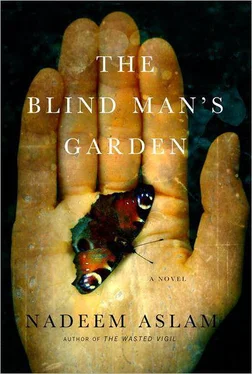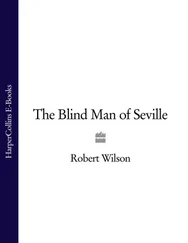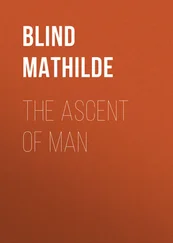From the beginning of January to April. More than three months during which Mikal was administered intravenous fluids and drugs against his will and was forcibly given enemas in order to keep his body functioning well enough for the interrogations to go on. Questionings from the CIA, FBI, MI5, MI6. Restraint on a swivel chair for long periods, loud music and white noise played to prevent him from sleeping, lowering the temperature in the room until it was unbearable and then throwing water in his face, forcing him to pray to Osama bin Laden, asking him whether Mullah Omar had ever sodomised him. Threats of deportation to countries known for torturing prisoners. ‘After they are through with you, you will never get married you will never have children you will never buy a fucking Toyota.’ Threats made against his family including female members, strip searches and body searches sometimes ten times a day, forced nudity, including in the presence of female personnel, threatening to desecrate the Koran in front of him, placing him in prolonged stress positions, placing him in tight restraint jackets for many days and nights, and in addition to all this there were the times when he was actually beaten for his ‘threatening behaviour’.
As they touch ground Mikal wonders if his murder will take place inside the ruined mosque, enclosed by the words of the Koran inscribed on the walls. The wind coming off the water has a smell like metal. Are the women and children who were left behind in January, after the men were picked up, still in there?
The two MPs climb out of the machine with him.
The three of them walk to where the rotor diameter ends, and there the two men stop, gesturing to Mikal to continue.
Keeping his eye on the mosque door ahead of him, he takes one step and then another, and then he smells it, the whiff of sulphur that is the unmistakable clue that a bullet has been fired. The noise of the rotors is too great so he doesn’t hear the gunshot. He holds his breath for a pearl diver’s minute. The sulphur intensifies and then he turns around and lifts the pistol from the hip holster of one of the Military Policemen, amazed at the freedom of movement in his unchained arms, amazed that his incomplete hands are now allowing him to place the pistol directly against the man’s throat and effortlessly pull the trigger. The air behind the neck balloons in a red mist. There is a small funnel of shockwave and in a frozen moment he sees himself reflected in the man’s American eyes. Next to Mikal in each eye is the reflection of the sun, the two placed side by side in each intense blue circle. He sees now to his astonishment that he has pulled the trigger a second time and now there is a bloody wound on the man’s breast. He swings the barrel towards the other man and shoots him too, the bullet entering the arm at the elbow and coming out through the wrist. He realises too late — his trigger pulled for the fourth time, the bullet travelling towards the white man’s face at point blank range — that someone is aiming at the helicopter from the mosque, that a hail of metal is coming towards them from the minarets, the sound lagging.
*
He is running upwards into the mountain. The slope is abrupt on the east and south but gentle to the north and west. Above him the day is withdrawing from the sky in long lengths of gold and soon he is high enough on the gradient to be able to see the mosque below him, the lake whose water he had crossed in a boat. The helicopter took off without the two fallen bodies. He can see them. The pilot made several attempts to come out to collect them, to capture Mikal, but the firing from the mosque was too intense. Mikal had dropped the pistol and run towards the boat that stood in a patch of reeds and poisonous dog’s mercury at the edge of the lake. No doubt they’ll return soon in greater number to begin their hunt for him.
If this were summer he would take handfuls of wild rose petals and eat them for the sugar, for the sweet water in them, but in spring there are only the cream white blooms of the wood anemone, his fingers plucking them as he goes, the traces of pink, the faint bitter scent reminiscent of leaf mould and foxes. He fills his pockets with them as he runs. There are mountain villages in Pakistan he has been to where the first wood anemone of each year is sewn into clothing, with the idea that beauty wards off pestilence and plague. Coming to a plateau he sits by a spring and makes a small boat with one of the banknotes the Americans had given him and sets it on the current. He enters a cave but leaves it a few minutes later, having found a collection of passports in a crevice and a list of thirty-three Jewish organisations in New York City. Darkness falls but he continues to move, the overcast sky a slab of unreadable black stone above him and as always the silence of the mountain is physical — a thing, with weight — and there is a wish in him to keep walking, to continue up into the mountain and into the high ice deserts, becoming God’s neighbour.
Arriving at a small village, twenty single-storey houses around a crooked street, he knocks on the first door. After salutations, he asks the man in Pashto whether he would like to own his clothes.
The man touches the material of his shalwar kameez but says he has no money.
Mikal explains that he only wishes to exchange them for another set.
‘Is someone pursuing you?’
‘No.’
‘Are you a bandit? A lover who has killed a rival?
‘No.’
The man is suddenly anxious about the possibilities he has raised and closes the door.
The knock on the next door produces a younger man who agrees readily to Mikal’s proposal, fingering the jacket lovingly, the small logos embroidered on the shoulders and pockets in orange and raspberry thread.
‘Why do you want to exchange them?’
‘I don’t like the colour.’
The boy looks at him. ‘Are you an American?’
‘What?’
‘Are you an American?’
‘No.’
‘Do you know where I can get a visa to live in America?’
‘No, I don’t.’
Mikal steps into the house and changes into the clothes the boy brings for him. He sees a knife on the floor in the corner. ‘Can I have that?’ he asks.
The boy picks it up and pulls the six-inch rusty blade out of the brass liners. It is a lockback knife with a cracked deer-antler grip and nickel bolsters. He makes a face, but on sensing that Mikal has some need for it, he erases the expression. ‘I can’t give it to you, it’s very dear to me.’
‘I’ll buy it.’
At the other end of the street he shouts into a window and asks if he can sleep in the stable. An old man’s face appears and then a woman’s beside him, their clothes marbled with grease and grime, and from the stable the goat looks at him with its agate eyes. They are poor like everyone else in the place and they smell of smoke, wax and sweat.
‘Where are you going?’ the man asks. ‘Where is your home?’
‘I don’t know. I am alone.’
The woman lifts both her hands to her ears, overcome with despair at being told such a thing, on meeting someone who can believe such a thing. ‘No one is alone on earth,’ she says. ‘No one.’
They invite him in and he sits with them on the earthen floor of their one-room house. The man tells him that Pakistan is over the mountains, through the cliff passes, and the woman brings him a bowl of milk with a triangle of stiff bread.
‘Someone must be waiting for you,’ the man says.
‘Listen to me,’ the woman touches the side of his head. ‘You must find your way back. In the past merchants and soldiers would go away for years to other lands. But they returned, to find people waiting for them.’
‘I returned after decades and she was here,’ the old man says.
Читать дальше












